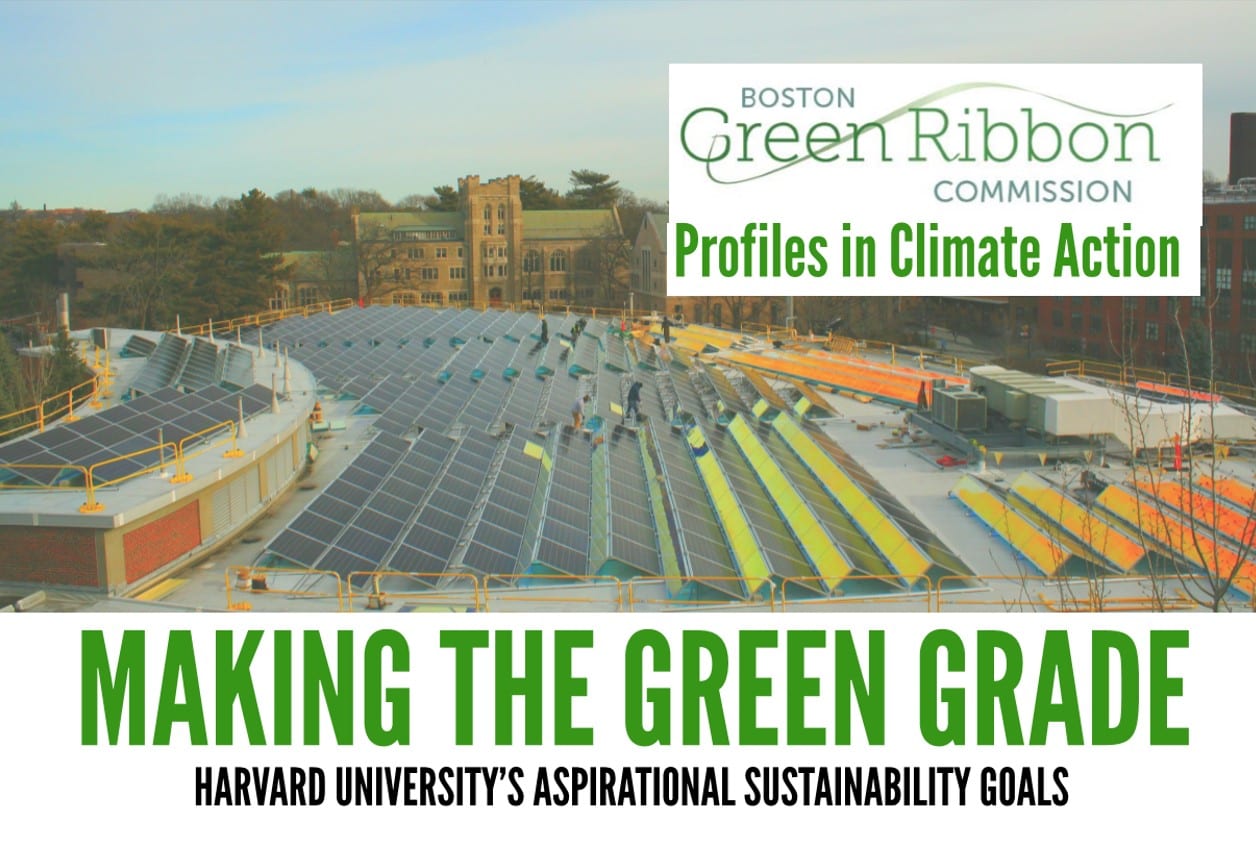Harvard University’s Aspirational Sustainability Goals
B oston is home to many of the world’s most renowned universities and research labs. The Green Ribbon Commission’s Higher Education Working Group convenes a group of Greater Boston’s leading academic institutions to address carbon reduction challenges facing universities, from reducing energy in labs, to sharing best practices in innovation.
oston is home to many of the world’s most renowned universities and research labs. The Green Ribbon Commission’s Higher Education Working Group convenes a group of Greater Boston’s leading academic institutions to address carbon reduction challenges facing universities, from reducing energy in labs, to sharing best practices in innovation.
The GRC’s most recent case study is on Harvard University and its achievements in meeting its campus-wide greenhouse gas emissions (GHG) targets. Harvard’s goal was designed to account for the full scope of the University’s emissions footprint, taking into consideration growth and the more than 600 Harvard-owned and Harvard-operated properties across North America.
In 2008, Harvard University built upon its longstanding research and teaching on climate change by setting a unique and ambitious goal to reduce University-wide greenhouse gas emissions 30 percent by 2016, from a 2006 baseline. The aggressive target was based on climate scientists’ consensus for what’s necessary to avoid two degrees Celsius of warming, instead of what was achievable through on-campus reductions alone.
Students, staff, and faculty at every level of the University embraced the challenge of meeting the aggressive 30 percent reduction goal. Harvard has convened a Climate Change Task Force composed of faculty experts, senior administrators, and students to envision a new set of ambitious climate commitments that will define its work on campus over the next decade.
Download the case study to read more about Harvard’s achievement.